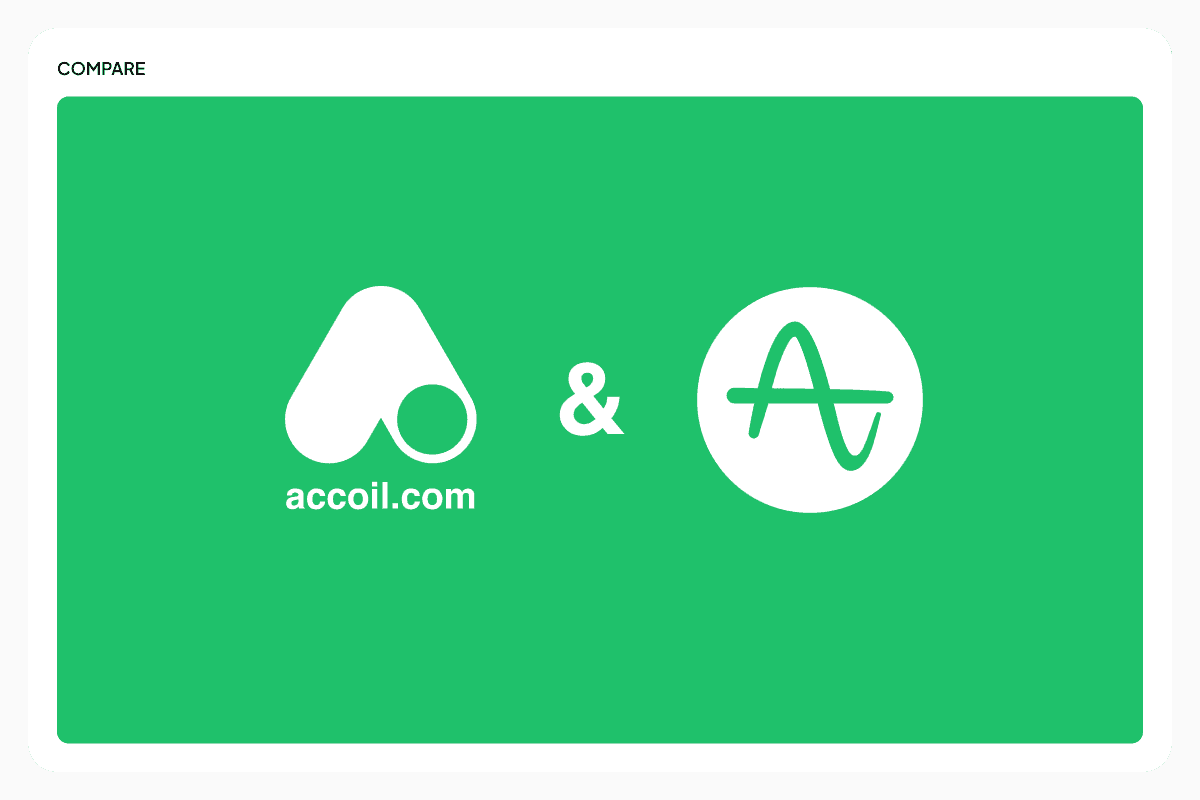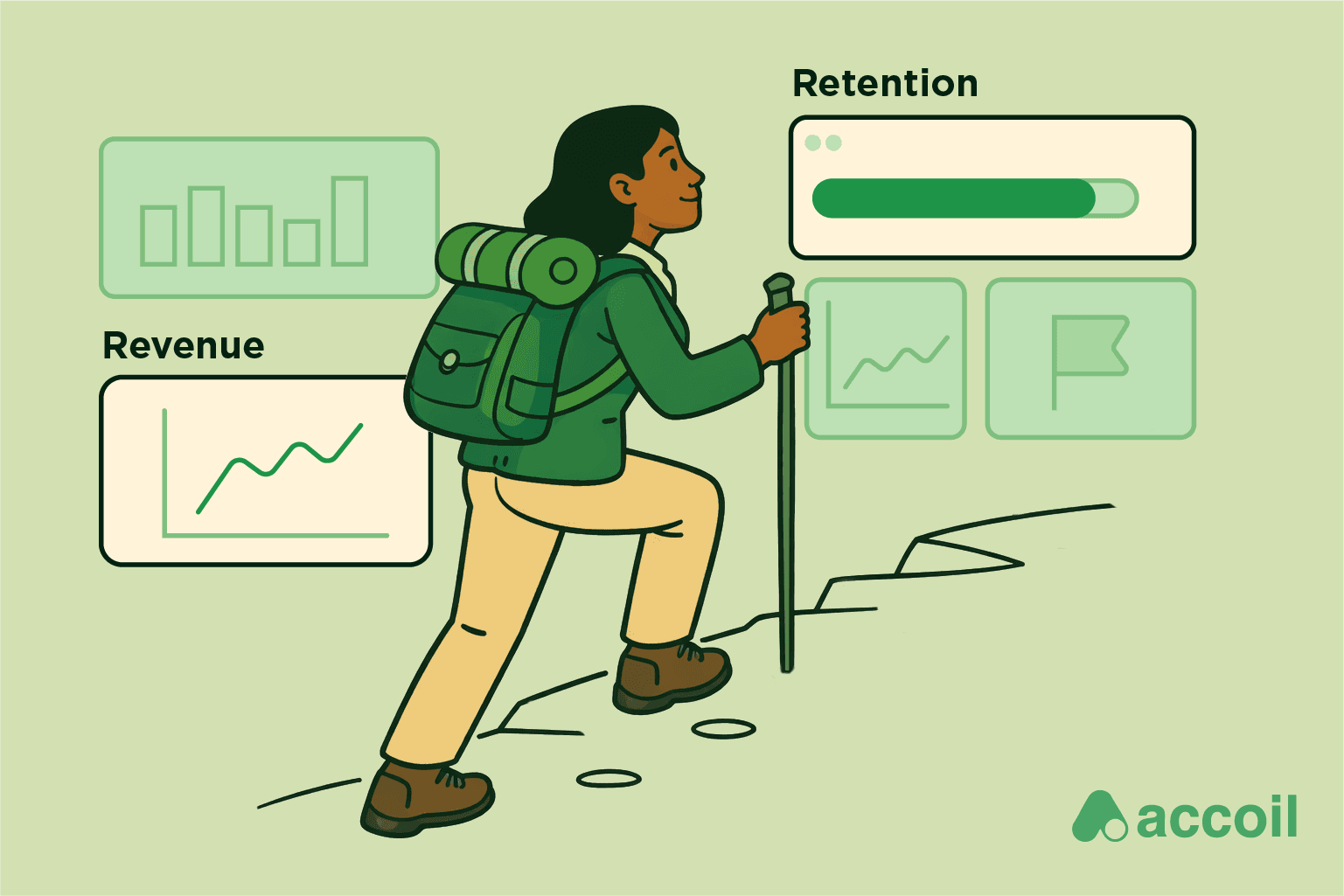tl;dr
- Amplitude is good for deep product analytics — funnels, cohorts, experimentation.
- Accoil is built for B2B SaaS customer health — account scores, churn alerts, CRM sync.
- Many teams run both together: Amplitude for exploration, Accoil for visibility and action.
Why B2B SaaS teams compare Accoil and Amplitude
B2B SaaS founders and CS leaders typically evaluate Accoil vs Amplitude when they need to:
- Understand user behavior in detail (Amplitude)
- Monitor account health and engagement to reduce churn, find upsell opportunities (Accoil)
- Balance analytics depth with simplicity and speed-to-insight
This article helps you decide — or see why pairing both tools may be your best move.
Features & capabilities
Amplitude: built for product analytics
- Funnels, cohorts, retention analysis
- Path analysis and event segmentation
- A/B testing and experimentation
- Deep integrations with data warehouses and marketing tools
👉 Best for product managers and analysts who want to answer complex questions with custom dashboards.
Accoil: built for customer insights
Insights like account health, engagement scores, and drift detection.
- Native account-level scoring without losing user-level insights
- Engagement profiles by lifecycle stage (trial vs enterprise)
- Real-time churn-risk alerts via Slack, HubSpot, Salesforce
- AI-generated summaries of account health, with suggested next-best actions
👉 Best for CS managers, founders, and GTM teams who need clear signals on which customers are healthy, slipping, or ready for expansion.
Amplitude vs Accoil at a glance
| Feature / Criteria | Amplitude | Accoil |
|---|---|---|
| Primary Focus | Powerful funnels, cohort analysis | Account health, customer success, GTM integration |
| Account-Level Analytics | ❌ Paid add-on (Group Analytics) | ✅ Native, all plans |
| Engagement Scoring | ❌ Build it yourself | ✅ Built-in & customizable |
| Ease of Use | ❌ Analyst-centric | ✅ Simple, non-technical |
| Setup Effort | 🔨 Heavy (tracking plan, dashboards) | ⚡ Plug-and-play (Segment, API) |
| Best For | Product/Growth teams; Pure product analytics | CS, Sales, Founders; B2B customer insights + Product Analytics |
| Integrations | CRM, Slack, Support, GTM tools; plus CDP | CRM, Slack, Support, GTM tools; plus CDP |
Pricing Comparison
Both products offer monthly and annual pricing. The table below shows the monthly rates.
| Tier / Scale | Amplitude Pricing* | Accoil Pricing |
|---|---|---|
| Free Tier | $0 (10K MTUs; 10M events) | $0 (30-day free trial) |
| Plus (Amp) / Startup (Acc) | ~$49/mo (300K MTUs) | $20/mo (250 accounts) |
| Growth | ~$995/mo (custom MTUs; see accounts w/add-on) | $299/mo (unlimited MTU; 200 accounts incl.) |
| Enterprise | from $15K/mo plus add-ons | from $2.5K/mo (unlimited MTU; accounts included) |
*Note: Amplitude's Group Analytics (accounts) feature is only available on paid tiers as an add-on.
👉 Key takeaway: If seeing account-level detail is important to you, Accoil includes account-level detail at all tiers; Amplitude requires higher plans + setup for the same.
Setup & Implementation
Amplitude
- Requires defined tracking plan and event instrumentation
- Build dashboards manually
- Time-to-value: weeks to months
Accoil
- Connect Segment, RudderStack, or API
- Feature and scoring setup is straightforward and transparent
- Time-to-value: hours to days
Who Should Use Which Tool?
-
Choose Amplitude if… You have analysts or growth PMs and want deep funnels, retention, and experimentation.
-
Choose Accoil if… You need to monitor account health, prevent churn, and give CS teams clear visibility.
-
Choose Amplitude + Accoil if… You want a full-stack approach: Amplitude for product analytics, Accoil for customer health and revenue protection.
FAQ: Accoil vs Amplitude
Does Amplitude support account-level analytics?
Yes, but only via 'Group behavior analysis', a paid add-on. You must pass Account IDs and configure dashboards. Not available in the free tier.
What's the difference between Accoil and Amplitude?
- Amplitude: product analytics for user events (funnels, cohorts, feature usage). Go deep into your data.
- Accoil: customer health analytics for accounts and users (engagement scores, churn alerts, CRM sync). Get the signals your teams need to take proactive action.
Can Accoil replace Amplitude?
Amplitude gives you deep product usage analysis. You can get a lot of the product analytics numbers you need from Accoil, but you won't match the depth or complexity of Amplitude. These two tools work best together and often serve different teams and use cases.
Use Accoil for account health visibility and Amplitude for deep product usage analysis. It's a similar story for analytics alternatives like Posthog and Mixpanel.
Why do some teams use both?
Because product teams and CS have different jobs:
- Amplitude answers "what are users doing in the product?"
- Accoil answers "which accounts (and their users) are getting value from our product or are at risk of leaving?" It also helps you answer the question "what are we going to do about it?" if you do find at-risk accounts.
Conclusion: choosing the right tool
- If your team has analysts and growth PMs → start with Amplitude
- If your team has CS managers and founders focused on retention → start with Accoil
- If you want the best of both worlds → run them side by side (you can import Amplitude data into Accoil)
Picking the right product analytics tools isn't always easy. But if you start with the job you need done, it gets a lot easier to choose the right tool for you and your team.



